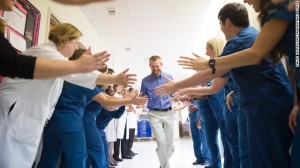Compassion in the Age of Ebola:
Emory, Spiritual Health, and a Global Health Crisis
A conversation with George Henry Grant, PhD, MDiv
Executive Director, Spiritual Health at Emory Healthcare
Julie: George, thanks so much for being with us today. The decision to treat patients infected with Ebola virus at Emory University Hospital drew public attention to this global health issue. Some saw this decision as a compassionate response. Others felt it was irresponsible and dangerous. You were at the nexus of providing spiritual health care and coordinating efforts among hospital chaplains. How did this experience influence your understanding of the role of spiritual care responders in a public health crisis?
 George: Historically, there have been two tracks to chaplaincy. One is spiritual health within the context of acute healthcare settings – a peculiar service within an interdisciplinary approach. The other is providing religious support to specific groups or industries – for example firefighters, public safety, police, military, or corporate life. At Emory, I’m within the healthcare education environment. Major academic medical centers such as Emory have long appreciated chaplaincy at the bedside. Now, the Affordable Care Act has given chaplaincy an impetus to move outside the hospital setting.
George: Historically, there have been two tracks to chaplaincy. One is spiritual health within the context of acute healthcare settings – a peculiar service within an interdisciplinary approach. The other is providing religious support to specific groups or industries – for example firefighters, public safety, police, military, or corporate life. At Emory, I’m within the healthcare education environment. Major academic medical centers such as Emory have long appreciated chaplaincy at the bedside. Now, the Affordable Care Act has given chaplaincy an impetus to move outside the hospital setting.
Chaplaincy within the acute care setting is easy to understand. Patients are in extreme distress over their health condition and we get called in for a variety of reasons, such as to foster emotional peace. The goals of chaplaincy in this setting have evolved. Increasingly, we understand our practice in response to specific symptoms. We are now engaged in whole-person health, and we care for and respond to individuals and to populations. We want to serve as “spiritual health clinicians” and address an array of human values, rather than as “firefighters” who are called on only when the house is burning. The language we use to describe our work makes a difference. Health has to be at the center of spiritual care, and spiritual care at the center of health. As “spiritual health” we are not 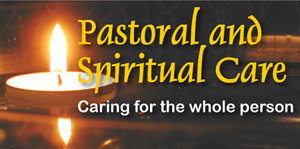 just there to pick up the pieces. We are part of the infrastructure of “care responding” – we are care responders in a multidisciplinary context. The Ebola event raised this understanding to a new level. How do we prepare for such a moment of crisis? This is the new opportunity for training and preparing spiritual health clinicians.
just there to pick up the pieces. We are part of the infrastructure of “care responding” – we are care responders in a multidisciplinary context. The Ebola event raised this understanding to a new level. How do we prepare for such a moment of crisis? This is the new opportunity for training and preparing spiritual health clinicians.
Spiritual health leaders need to be ‘out in the field’ as well as ‘at the table’ to ensure that spirituality is a critical component of health. We already understand this in hospice and palliative care. These movements grew out of the recognition that spiritual concerns are as important as bodily concerns. This is true whether you are struggling with a chronic illness, receiving a diagnosis of a pivotal disease, or having a regular health checkup. Spiritual health is part of whole person health, so why not integrate it?
Julie: When the Ebola patients came to Emory University Hospital, you were at the center of this compassionate response. What did you witness among the care responders?
George: To begin, let me speak to being a ‘health clinician at large.’ A lot of us in healthcare are drawn to it because of a missional attitude – “I want to help people. I may not know why I want to help people, but I want to help people.” So I find myself either drawn to medical school, nursing school, physical therapy, rehabilitation, respiratory…all these different fields. There’s a calling to healthcare that warrants a certain amount of respect. It may not be ostensibly or explicitly religious or spiritual or sacred, but there is a burning of the soul.
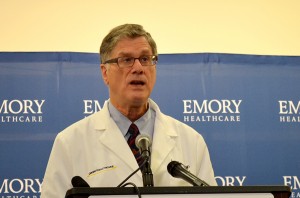 Dr. Bruce Ribner, medical director of Emory University Hospital’s Serious Communicable Disease Unit, said, “We’ve been training for an Ebola outbreak for twelve years.” In spiritual health, we’ve been training for the Ebola crisis for forty-five years. Responding to distress is what we do day in and day out, because invariably 90% of the moments in which we are asked to serve are crisis moments.
Dr. Bruce Ribner, medical director of Emory University Hospital’s Serious Communicable Disease Unit, said, “We’ve been training for an Ebola outbreak for twelve years.” In spiritual health, we’ve been training for the Ebola crisis for forty-five years. Responding to distress is what we do day in and day out, because invariably 90% of the moments in which we are asked to serve are crisis moments.
Spiritual health clinicians are crisis-oriented, and we are drawn to trauma through “selfless regard.” This selfless regard allows us to bracket our own concerns for a time and jump in, all hands on deck. Selfless regard is good, but it also has challenges. If I do this in a mindless way, I may forego my own care and contribute to something that’s not healthy for me, the environment, or the care seekers. At the other end of the spectrum from selfless regard is “compassion fatigue,” which is a common term that grew out of the terminology of burn-out. As care responders caring for staff we have to be attentive to moments of compassion fatigue as much as we need to be attentive to someone saying, “I have a cold today and I really shouldn’t be here.” Our role as spiritual health clinicians is to listen for these moments.
 All of us who were responding to the Ebola events needed to understand ourselves as being on this spectrum of selfless regard and compassion fatigue. My intention may begin with selfless regard and then quickly catapult into compassion fatigue. The optimum striking point is somewhere in the middle, not at the extremes. During the Ebola crisis, those persons who took care of themselves outside of the context of the crisis were the ones that did best. We had challenges where some people quickly volunteered, jumped in without caring for themselves, and a week later were toast. You find this dynamic in the global health field, too.
All of us who were responding to the Ebola events needed to understand ourselves as being on this spectrum of selfless regard and compassion fatigue. My intention may begin with selfless regard and then quickly catapult into compassion fatigue. The optimum striking point is somewhere in the middle, not at the extremes. During the Ebola crisis, those persons who took care of themselves outside of the context of the crisis were the ones that did best. We had challenges where some people quickly volunteered, jumped in without caring for themselves, and a week later were toast. You find this dynamic in the global health field, too.
David: Yes, and it’s not just saving a couple patients in global health, it’s saving the whole world! In global health, the trajectory from selfless regard to compassion fatigue often takes ten or fifteen years. It’s a slow burn that can grind you down, and you don’t realize how burned out you’re getting because you are so busy saving the world. And so are all of your colleagues!
George: I worked one summer with a herd of cattle. When the cows feel like something is going to happen to one of them, they all collapse in together. It’s the funniest thing, but they become silent, they bunch up, and they cling to each other. You can’t even get your hand in between them to break them apart. That also can happen in the healthcare environment. One person may say, “I’m not feeling good about this,” and others quickly attach themselves to that mindset. It can happen to an entire treatment area. When people bunch up like that, you can’t get your hand in there, and you can’t break them up.
I didn’t want to see this happen within the Ebola unit. It was important to appreciate each person on the care team for their individuality instead of treating everybody the same. Everyone experienced spiritual distress – the spiritual health clinicians, the patients, the families, the people cleaning the room. The spiritual health clinicians provided insight and support to each person individually, and met them where they were on the selfless regard / compassion fatigue spectrum.
I have a term I call “mo-mos”, motivational moments. Invariably in every team meeting we have, I call for a mo-mo. So often we’re divulging what we’re doing, or what we need to be more effective. More often than not we are deficit-driven in our motivation. But a mo-mo helps us appreciate each other, celebrate our work, and build confidence. Building confidence grows competency.
Compassion has a self-inducing factor. If I don’t have compassion for myself, I can’t have it for others. When I celebrate with my colleagues what motivates me, it perseverates. I need to luxuriate in what inspires me in order to be compassionate for others. If I’m not seeking to be understood, affirmed, and confirmed by others, then I’m probably not providing that to myself either. That’s when compassion fatigue sets in, and my competency declines.
Julie: I imagine fear of spreading the Ebola virus brought personal safety concerns to a new heightened level at Emory.
George: Many of us in North America expect a privileged place of containment. We are good at keeping people out, putting up fences, oppressing people from within. When our personhood is threatened it can bring up a lot of anger, fear, and anxiety. Every extreme emotion you can imagine gets raised, and that in and of itself can limit our effectiveness. So if persons are alert to those emotional challenges from within but are not expressing them, it can be dangerous.
Nobody really knew what was going to unfold with the Ebola patients at Emory. I was in on the early preparation meetings before the patients arrived, and we didn’t know what was going to happen. We were prepared that some of our own folks might become contaminated, because people were being contaminated in Africa. The Ebola event was a global health issue in our backyard.
Julie: There are many CDC employees in West Africa addressing the Ebola crisis. What might spiritual health clinicians offer to help them prepare for their journey or while they are in the field?
George: The symptomatology of spiritual distress affects not just the person who is ostensibly ill, but all of those connected to that person – the family, the community, the care responders. When you are in the global health field for a year, you’ve left behind many of your support systems. You’re exposed day in and day out to trauma, morbidity, and the slow grind to compassion fatigue. You’re left in spiritual distress questioning why you came out here in the first place. You are in a no-win battle, 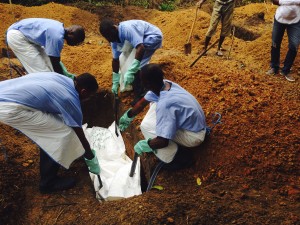 where people are dying no matter what you do. You thought you were going to save a bunch of people, and they are all dying. You feel like a failure. Within global health, it would be optimal to have spiritual health clinicians, along with other health clinicians, available to respond to these moments of human values crises. A spiritual health clinician can step into a difficult situation with you and respond to your spiritual needs.
where people are dying no matter what you do. You thought you were going to save a bunch of people, and they are all dying. You feel like a failure. Within global health, it would be optimal to have spiritual health clinicians, along with other health clinicians, available to respond to these moments of human values crises. A spiritual health clinician can step into a difficult situation with you and respond to your spiritual needs.
People in the field need to be able to release feelings, and say “this is terrible work, day in and day out.” I think if we had spiritual health clinicians in the field it would reduce the addiction to trauma and PTSD problems that exist when people return from those horrible experiences. I don’t think we’ve even begun to understand what it’s like for public health persons to come back from the field exposed to trauma. It’s just as detrimental and debilitating as any other kind of trauma, but we’re not doing anything about it.
David: You’re right on. It’s always fascinated me that the military gets it, at some level. I was an officer in the US Public Health Service for 20 years. There are no chaplains in the USPHS, no office of chaplaincy. There’s not even a thought that chaplains could have any role. It’s totally off their radar, and yet the unmet need is huge. Where is the attention to “health” for global health employees?
George: Military chaplaincy emerged as a response to address a traditional faith role rather than addressing human values. It was about meeting a religious care need, addressing a peculiar symptom. Over time, it became obvious that military chaplains did great work, such as offering marriage and family therapy to address problems that occur back at home.
In global health, we need to address spiritual health on multiple levels, but particularly human values. For example, it’s important for an anthropologist or epidemiologist to understand spiritual distress when engaged in a different culture. What does it mean for an indigenous group to have spiritual distress? I would want to know this for a peculiar religion or spirituality in a given region that I’m working in. Do I need to be an ambassador or bridge to the community healers who hold a considerable amount of power and influence over health? Villagers go to the community healers on a regular basis. They might attend to western medicine at the same time, but they’re going to go to 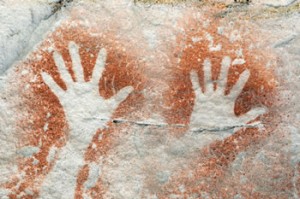 their community healers. That person may not be part of mainstream religion, but greatly affects health outcomes. You’re trying to stop a disease from spreading across the globe, but you don’t have the cultural apparatus to make it happen. You can go set up a tent out behind your plane to serve people, but that doesn’t mean you’re going to be successful. So, in global health, it is imperative to train people in the religio-spiritual-cultural epidemiologic issues. Workers need to discover, describe, and then respond to the issues at hand. Spiritual health clinicians can play a key role in attaining successful global health outcomes.
their community healers. That person may not be part of mainstream religion, but greatly affects health outcomes. You’re trying to stop a disease from spreading across the globe, but you don’t have the cultural apparatus to make it happen. You can go set up a tent out behind your plane to serve people, but that doesn’t mean you’re going to be successful. So, in global health, it is imperative to train people in the religio-spiritual-cultural epidemiologic issues. Workers need to discover, describe, and then respond to the issues at hand. Spiritual health clinicians can play a key role in attaining successful global health outcomes.
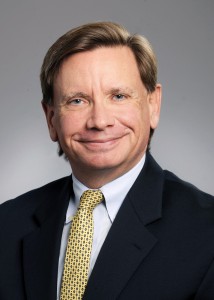 George Henry Grant, MDiv, PhD, is a psychologist, theologian, and the Executive Director of Spiritual Health at Emory Healthcare. He is an ordained United Methodist Minister and has served as pastor of churches in South Carolina. He is a certified Clinical Pastoral Educator (ACPE, Inc.), appointed to the faculties of Nursing and Theology, and is a fellow in the Woodruff Leadership Academy for the Health Sciences.
George Henry Grant, MDiv, PhD, is a psychologist, theologian, and the Executive Director of Spiritual Health at Emory Healthcare. He is an ordained United Methodist Minister and has served as pastor of churches in South Carolina. He is a certified Clinical Pastoral Educator (ACPE, Inc.), appointed to the faculties of Nursing and Theology, and is a fellow in the Woodruff Leadership Academy for the Health Sciences.

